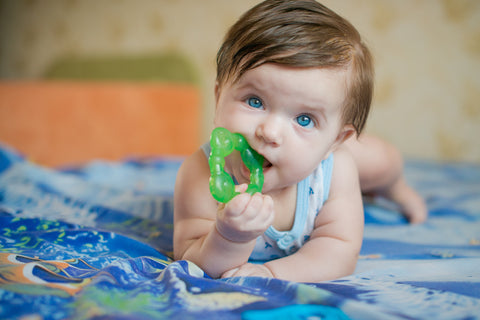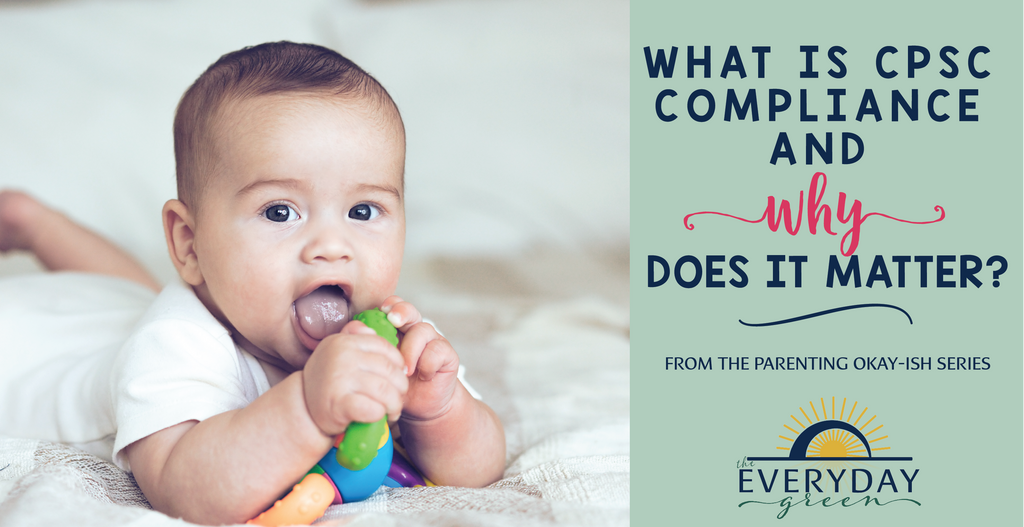The United States Consumer Product Safety Commission (CPSC) is a government run organization that protects the public from risks of injury or death associated with the use consumer products that pose a fire, electrical, chemical, or mechanical hazard. They've been around for 40 years, and cover all kinds of things from toys, power tools, cribs, household cleaners, etc...
So why does this matter?
EVERY manufacturer of products that fall under CPSC jurisdiction is required to follow compliances. It doesn't matter if you make one, or if you make a million. Even small manufacturers, like the ones you find at your local craft store or Etsy, are required to registered with the CPSC as a Small Batch Manufacturer and follow compliances. As a parent, this matters most to items related to children. It is the manufacturer's responsibility to follow, because it keeps children safe.
Especially the kid who eats the paste. (Don't pretend you didn't.)

Paste is one thing... but a bib? Come on... it's just a bib!
It is just a bib... OR IS IT???
According to the CPSC, a bib is children's clothing and must meet compliances. This means every material that goes into that product has phthalate and/or lead testing completed by a third party, CPSC approved lab, or the material is exempt from testing (such as plain weave cotton fabric or polyester fleece). This is especially important for children's products because they put EVERYTHING in their mouths.

A little note about fabric: certain fabrics are exempt, and others need testing. Most small batch manufacturers will not shell out the money for testing, because it is cost prohibitive, so they either exclusively use fabric types that are exempt from needing testing, or they purchase fabric from manufacturers that have testing certifications on the raw materials (like KAM Snaps, bless their hearts).
What to look for:
- Plain weave cotton (ex. calico)- EXEMPT
- Raised weave cotton (ex. flannel, terry cloth) - needs testing or certifications if it's exposed to air, meaning if it's wedged between two layers of exempt fabric, it's fine.
- Polyester (ex. fleece or cuddle fabric) - EXEMPT
- Other fabrics (ex. rayon, wool, silk) - needs testing or certifications from manufacturer
Disclaimer: This is by no means a complete list.
Look- I am not going to poo-poo on your grandma's beautiful hand crocheted, locally-sourced, grass-fed llama wool bib she made for little baby Shelly. It's your grandma, she gave it to you as a gift, you smiled even though you knew there was no way in hell you were going to put that on your baby, and then you did anyway and took the obligatory picture. (High five!)
But............................. what I am suggesting is if you're purchasing from a manufacturer you don't know, do your homework.
Check for to see if they are CPSC or CSPIA compliant.
From a business owner's perspective, compliance is a LOT of work, because it goes into every aspect of product design. A boutique label or small shop is going to brag about that shit, and use their compliance as a selling point. It shouldn't be hard to find- just go to the "About" section or send a quick message. If they are compliant, they will let you know with enthusiasm (and be grateful you asked)!
Then you can rest easy, and let them eat paste.



Comments (0)